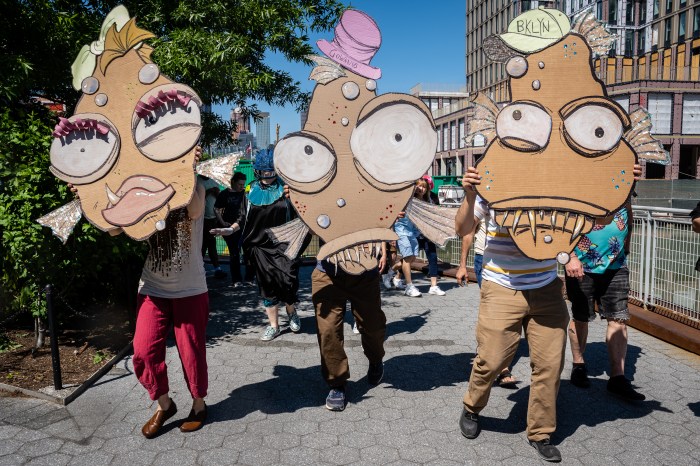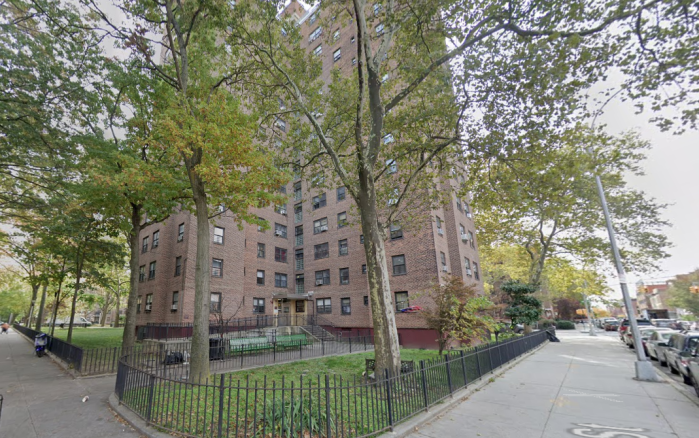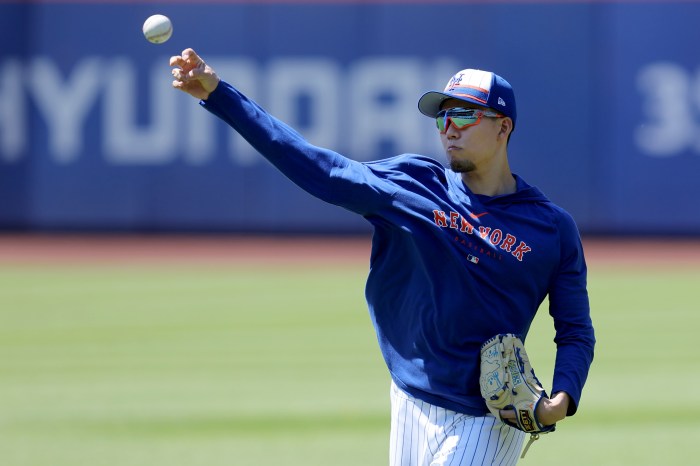What a load of crap.
Somebody dumped a whole heap of horse manure at a dead end beside the Gowanus Canal last week. The culprit may have been trying to avoid the hassle of trucking the equestrian waste to nearby farms, which stable owners and farmers we polled said is standard practice.
Our eagle-eyed photographer spotted the two piles of plop on Oct. 6 at the end of Huntington Street, between Smith Street and Brooklyn’s nautical purgatory. And by the looks of it, they came out of more than one animal. The nearest horse housing is Kensington Stables, two and a half miles away in Windsor Terrace. The stable’s owner said his 30 horses produce far more waste than what was dumped canal-side, and that there is a system in place to deal with it all.
“We don’t have any issue with manure because it all gets shipped upstate,” said owner Walker Blankinship, explaining that his company pays to have the poop hauled away.
An upstate small-farm-food distributor said that, while cow manure is widely used as fertilizer, horse dung isn’t produced in enough volume around here for it to have become a hot commodity, and that the cost of transporting it from New York City generally outweighs what farms might pay.
“If you’re in the city, no one is going to make money selling horse manure upstate,” said Paul Alward, of the New Paltz, New York company Hudson Valley Harvest.
Some city horse operations contract with rural mushroom farmers, who grow toadstools out of the road stools, Alward said. Jamaica Bay Riding Academy in Mill Basin does just that, paying a Pennsylvania fungus professional to cart off the excrement, a worker said.
Horse feces can carry lethal bacteria, but the city treats dumping it the same as unloading household garbage, a sanitation department spokesman said.
The department opened an investigation into the source of the dumped dung after a call from this paper, the spokesman said.
























